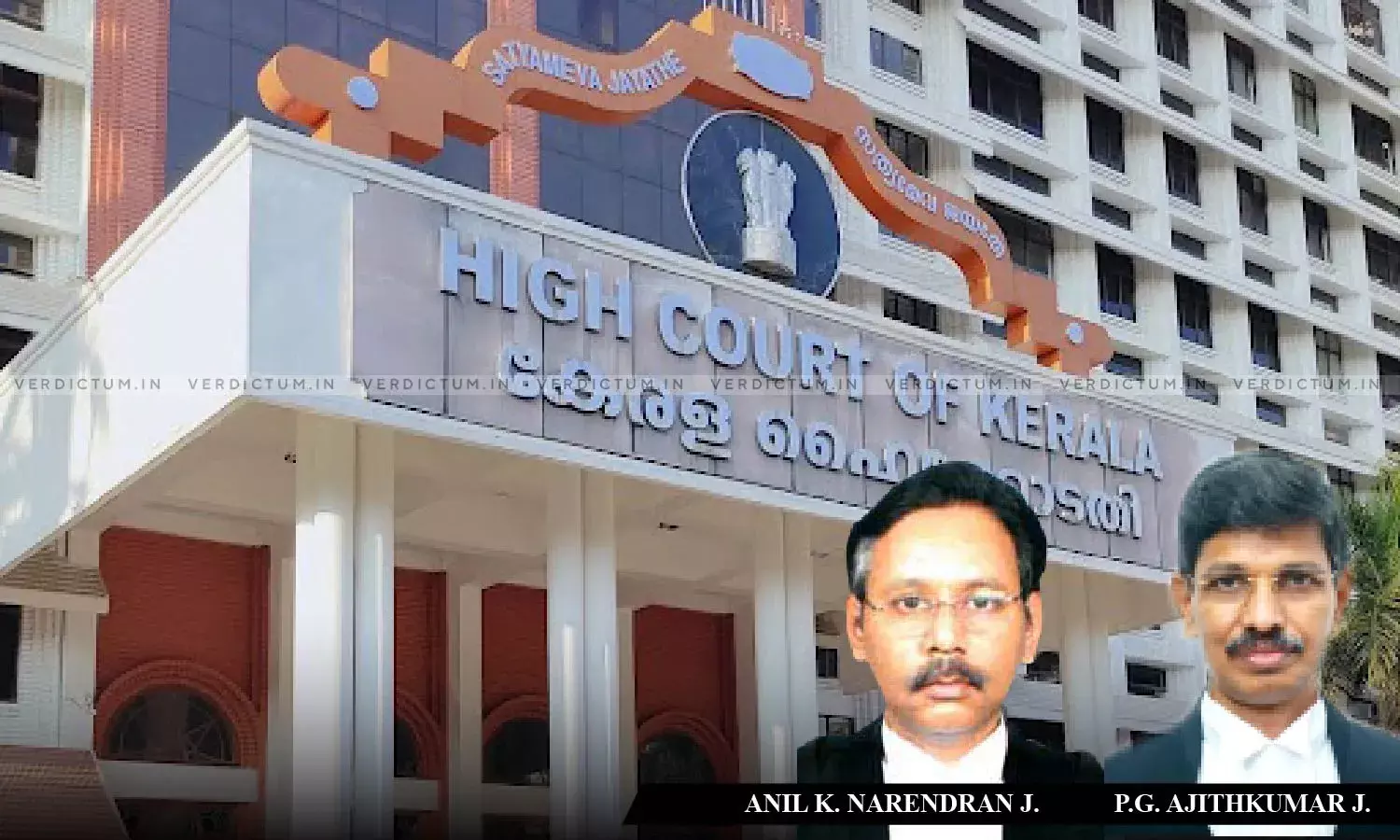No Application U/s. 12 Of Domestic Violence Act Pending Before Magistrate Can Be Transferred To Family Court: Kerala HC

While emphasizing that women alone can claim reliefs provided under Sections 12 to 18, be it by filing an application under Section 12 or by applying in a pending proceeding by invoking Section 26 of the D.V. Act, the Kerala High Court held that a proceeding initiated under the Domestic Violence Act before a Judicial Magistrate of the First Class cannot be transferred to a Family Court.
The Division Bench of Justice Anil K. Narendran and Justice P.G. Ajithkumar observed that “The intention of the Legislature to confine the jurisdiction to entertain an application under Section 12 of the D.V. Act to the Judicial Magistrates is clear from provisions in the Act. As long as the Family Court or, for that matter, other civil courts cannot have original jurisdiction to entertain an application under Section 12 of the D.V. Act, no application under Section 12 pending before a Magistrate can be transferred to a Family Court”.
Advocate Prabha R. Menon appeared for the Petitioner, whereas Advocate Saiby Jose Kidangoor appeared for the Respondent.
The brief facts of the case were that the appellant wants his application pending on the files of the court of the Additional Chief Judicial Magistrate (Economic Offences), Ernakulam to be transferred to the Family Court, Ernakulam. The subject application was filed invoking the jurisdiction of this Court under Section 24 of the Code of Civil Procedure, 1908.
After considering the submission, the Bench found that the preamble of the D.V Act exemplifies that it is an Act enacted to provide for more effective protection of the rights of women guaranteed under the Constitution of India who are victims of violence of any kind occurring within the family and for matters connected therewith or incidental thereto.
“A victim of violence of any kind occurring within the family is an aggrieved person. An aggrieved person as defined in Section 2(a) of the D.V Act is any woman who is, or has been, in a domestic relationship with the respondent and who alleges to have been subjected to any act of domestic violence by the respondent”, added the Bench.
The Bench noted that the scheme of the D.V Act is such that an aggrieved person is ensured more effective protection through the forum of a criminal court, as the D.V Act was enacted much after the Family Courts Act, 1984 came into force.
“The Legislature, fully conscious of the provisions of the Family Courts Act, had enacted the D.V Act in 2005 creating a special forum by investing powers on Judicial Magistrates to deal with the applications under Section 12 and creating a Court of Session as the appellate forum under Section 29”, added the Bench.
The High Court clarified that when women alone are given that right, allowing a respondent in an application under Section 12 of the Act to get the application transferred to a Family Court or other civil court will amount to denial of the special right conferred upon the aggrieved women.
“Often that will result in facilitating the respondent to pin down the aggrieved woman to a forum which may be totally inconvenient to her”, added the Court.
Going by the definition of the respondent in Section 2(q) of the D.V. Act, the High Court elucidated that a female living in a relationship in the nature of a marriage, in other words, living-in-relationship may also file an application under Section 12 of the D.V Act.
“If it is held that an application under Section 12 of the D.V Act is liable to be transferred to a Family Court, that will result in an indiscriminate classification inasmuch as a Family Court is empowered to entertain disputes between the parties to a marriage only”, clarified the Court.
The High Court therefore concluded that an application under Section 12 of the D.V Act cannot be transferred to a Family Court.
Cause Title: Vineet Ganesh v. Priyanka Vasan
Click here to read/download the Judgment

